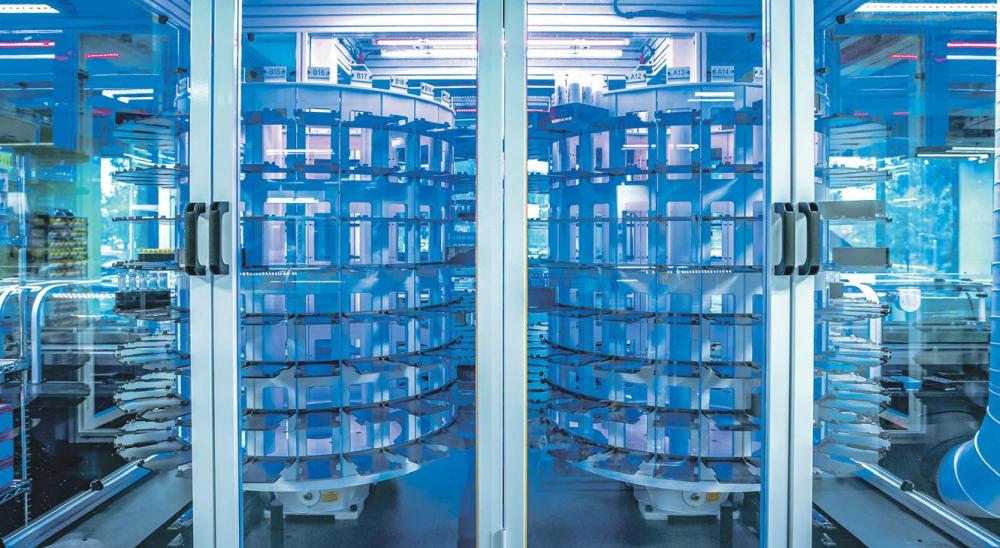
It's 1am on the west coast of America, but the Emerald Cloud Lab, just south of San Francisco, is still busy. Here, more than 100 items of high-end bioscience equipment whirr away on workbenches largely unmanned, 24 hours a day and seven days a week, performing experiments for researchers from around the world. I'm "visiting" via the camera on a chest-high telepresence robot, being driven round the 1,400 sq metre lab by Emerald's CEO, Brian Frezza, who is also sitting at home. There are no actual scientists anywhere, just a few staff in blue coats quietly following instructions from screens on their trolleys, ensuring the instruments are loaded with reagents and samples.
Cloud labs mean anybody, anywhere, can conduct experiments by remote control, using nothing more than their web browser. Experiments are programmed through a subscription-based online interface, and software then coordinates robots and automated scientific instruments to perform the experiment and process the data. Friday night is Emerald's busiest time of the week, as scientists schedule experiments to run while they relax over the weekend.
There are still some things robots can't do, for example lifting giant carboys (containers for liquids) or unwrapping samples sent by mail, and there are a few instruments that just can't be automated. Hence the people in blue coats, who look a little like pickers in an Amazon warehouse. It turns out that they are, in fact, mostly former Amazon employees.
Emerald originally employed scientists and lab technicians, but they were creatively stifled with so little to do. Poaching Amazon employees is working out better. "We pay them twice what they were getting at Amazon to do something way more fulfilling than stuffing toilet paper into boxes," said Frezza.
This story is from the September 23, 2022 edition of The Guardian Weekly.
Start your 7-day Magzter GOLD free trial to access thousands of curated premium stories, and 9,000+ magazines and newspapers.
Already a subscriber ? Sign In
This story is from the September 23, 2022 edition of The Guardian Weekly.
Start your 7-day Magzter GOLD free trial to access thousands of curated premium stories, and 9,000+ magazines and newspapers.
Already a subscriber? Sign In

No 298 Bean, cabbage and coconut-milk soup
Deep, sweet heat. A soup that soothes and invigorates simultaneously.

Cottage cheese goes viral: in reluctant praise of a food trend
I was asked recently which food trends I think will take over in 2025.

I'm worried that my teenage son is in a toxic relationship
A year ago, our almost 18-year-old son began seeing a girl, who is a year older than him and is his first \"real\" girlfriend.

BOOKS OF THE MONTH
A roundup of the best recent science fiction, fantasy and horror

Dying words
The Nobel prize winner explores the moment of death and beyond in a probing tale of a fisher living in near solitude

Origin story
We homo sapiens evolved and succeeded when other hominins didn't-but now our expansionist drive is threatening the planet

Glad rags to riches
Sarcastic, self-aware and surprisingly sad, the first volume of Cher's extraordinary memoir mixes hard times with the high life

Sail of the century
Anenigmatic nautical radio bulletin first broadcast 100 years ago, the Shipping Forecast has beguiled and inspired poets, pop stars and listeners worldwide

How does it feel?
A Complete Unknown retells Bob Dylan's explosive rise, but it als resonates with today's toxic fame and politics. The creative team expl their process-and wha the singer made of it all
Jane Austen's enduring legacy lies in her relevance as a foil for modern mores
For some, it will be enough merely to re-read Persuasion, and thence to cry yet again at Captain Wentworth's declaration of utmost love for Anne Elliot.